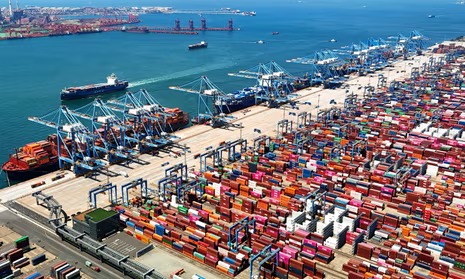At the ASEAN summit on October 10, 2024, Chinese Premier Li Qiang called for deeper economic integration with Southeast Asia, emphasizing the need for enhanced trade relations amid ongoing tensions in the South China Sea. His remarks followed recent confrontations between China and ASEAN members, including the Philippines and Vietnam, which have raised concerns over China’s assertive actions in the disputed waters.
Li highlighted the importance of a robust market for promoting economic prosperity, stating that global economic recovery remains sluggish amid rising protectionism and geopolitical turbulence. He noted progress in negotiations to upgrade the ASEAN-China free trade agreement, which aims to improve supply chain connectivity, digital economy cooperation, and green initiatives. Since the pact’s inception in 2010, trade between ASEAN and China has surged from $235.5 billion to $696.7 billion last year.
Despite these strong economic ties, ASEAN has been cautious in its criticism of China, advocating for restraint and adherence to international law. Meanwhile, U.S. Secretary of State Antony Blinken is anticipated to raise concerns regarding China’s actions in the South China Sea during his participation in the summit. ASEAN leaders will also engage in discussions with Japan’s new Prime Minister, Shigeru Ishiba, and South Korean President Yoon Suk Yeol.
Former ASEAN Secretary-General Ong Keng Yong stressed the bloc’s vital role in maintaining regional stability, asserting that ASEAN’s diplomatic efforts have sustained peace and progress.
While economic cooperation between China and ASEAN is poised for growth, the underlying tensions in the South China Sea present significant challenges. Balancing economic interests with regional security concerns will be crucial for ASEAN as it navigates its relationship with China and its broader international partners.
Disclaimer – The views and opinions expressed in the commentaries/blogs/articles are those of the authors and do not necessarily reflect the official policy or position of the Forum for Global Studies.

